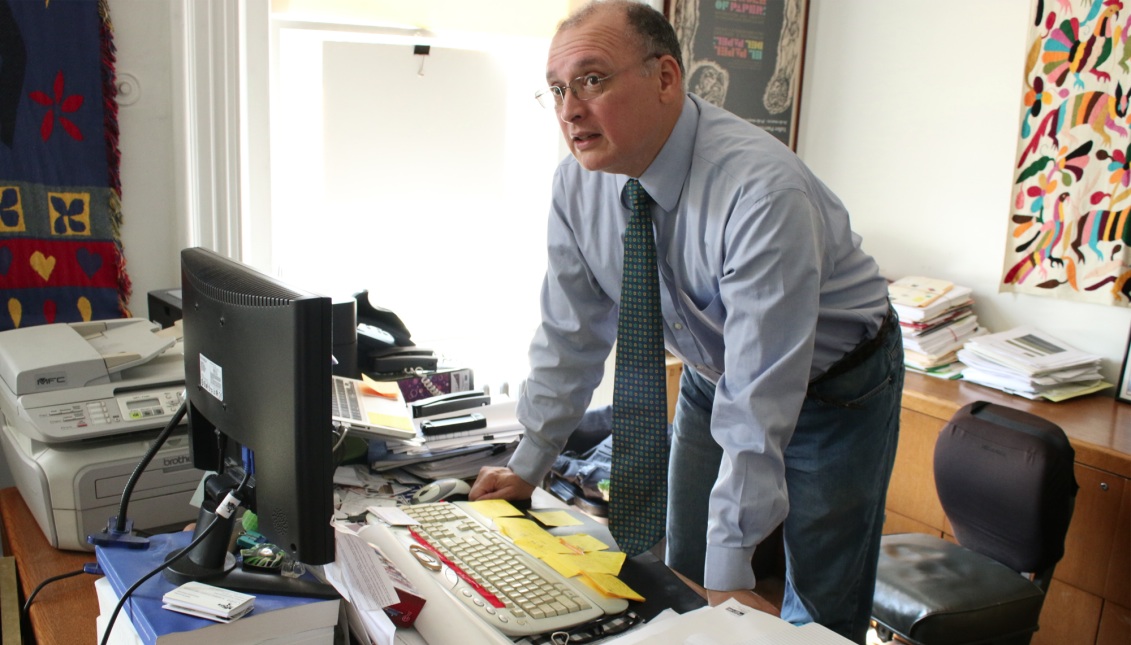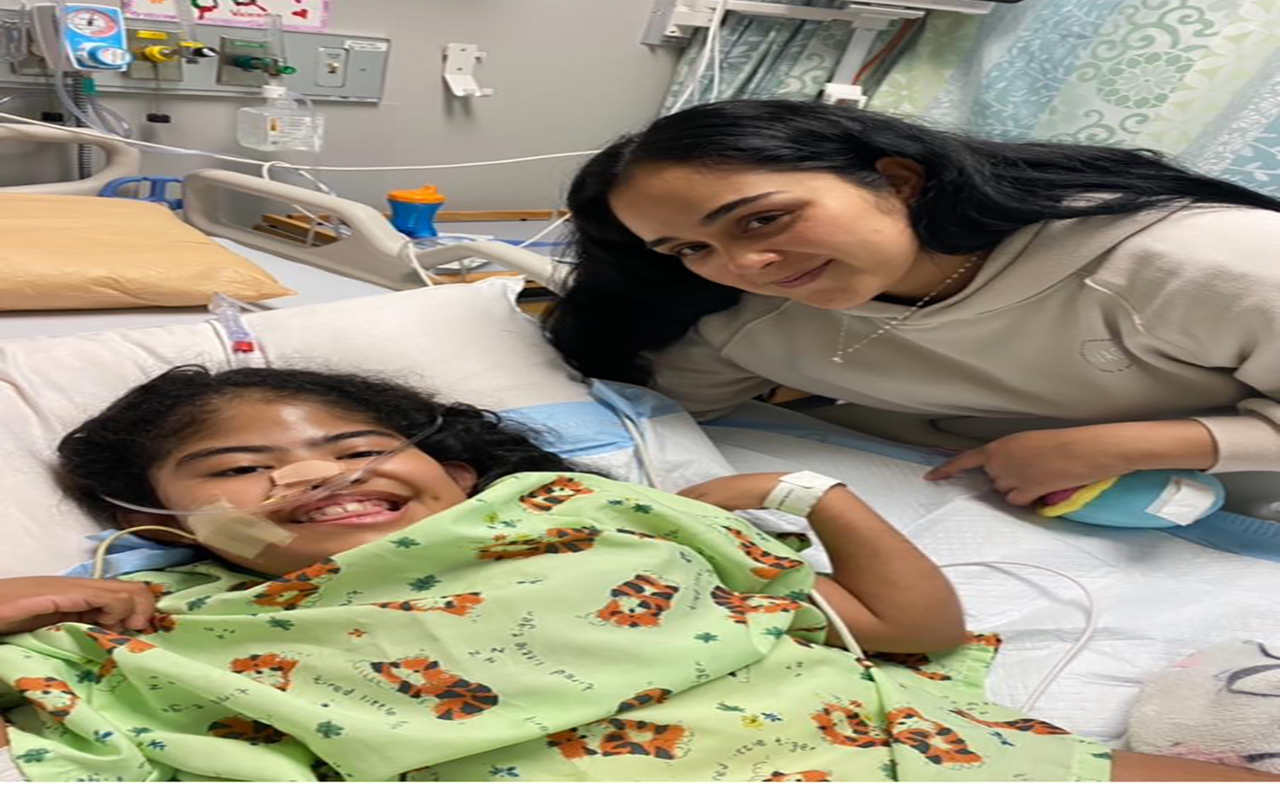
Agents of change
As Malcolm Gladwell said, "The success of any kind of social epidemic is heavily dependent on the involvement of people with a particular and rare set of…
As Malcolm Gladwell said, "The success of any kind of social epidemic is heavily dependent on the involvement of people with a particular and rare set of social gifts”. Take a look at some Latino CEO’s and leaders that are catalyzing change in the region.
Will González
As a newcomer in Philly, I first knew Will Gonzalez as a sports columnist and baseball aficionado thanks to his AL DÍA News column “Bocadillos de Béisbol,” which he published for years. It wasn’t until later that I found out about his long career as an activist and civic leader.
A community lawyer for more than 25 years and the current president of the Hispanic Bar Association of Pennsylvania (HBAPA), González focuses his work to address those affected by lack of opportunities.
He was elected president of HBAPA in January of this year, a one-year appointment. Many of his new responsibilities and agenda are shared concerns of his other job: as executive director of CEIBA, the non-profit organization he’s lead since 2001.
“I deliberately waited to be president of HBAPA. I wanted to make sure it was the right time to undertake the infrastructural change, I am happy to say that is a great team of young and dynamic Latino lawyers who are stepping up,” Gonzalez said.
The state office works closely with the Hispanic National Bar Association in the development of outreach and opportunities for Latinos in law education through programs and funds.
“I have done my work in a community that receives little attention. In the ‘90s I worked on police accountability issues, and for the past 13 years I have focused on undocumented immigrants’ economical rights,” González said.
The organization helps immigrants to fill out their tax returns or learn about the banking system. “We also solve problems related to foreclosure and rights of immigrants who have a limited English to have equal access to government services,” González said.
He believes the biggest barriers for Latinos are in education, including the high dropout rates and high costs for college.
“There are some alternatives but that’s not enough, and it ties the hands of many students who do not have professional freedom,” González said. “Then you also have civil rights issues in a community that is growing and is very diverse.”
Born in New York and raised in Puerto Rico, while he was a student he had to constantly travel between two cities, living first on the island not knowing enough Spanish and then in New York not knowing enough English.
When asked what helped him personally overcome the barriers as a Latino student, his answers acknowledged those who came before him.
“The difference, in my case, were all those people who opened doors and stuck their necks out for me. I consider it very important to do the same for those who are behind me,” González said. “It is one of my motivations to work with the community. Because I know I wasn’t alone doing things. Many of those people are never recognized, but they are the ones who make sacrifices to open doors to students like me.”
González has worked in Philly since 1985, and now considers himself a "Pennsyrican."
According to him although there are many types of attorneys to become a community lawyer you need three things. “A sense of integrity in your work, communication skills and creativity, because a lot of times people are presented with situations that they say can’t be done,” he said. “And you need to be ready to answer with different ways.”

Alejandro Gac-Artigas
This experience was the inspiration behind Springboard Collaborative, the current organization he runs as founder and CEO. The mission of the non-profit is to close the gap in reading performance through advice and training for parents.
“Since its launch, the organization has quickly grown its reach from 42 to 1,200 students through vendor agreements with the Philadelphia and Camden School District," Gac-Artigas said.
The young entrepreneur credits his professional development to his immigration experience and the value of education.
"When I was 7, my family immigrated to the United States to escape political persecution and seeking educational opportunities," Gac-Artigas said. "I attended public schools and what made a difference in my success was my parents."
His father is a Chilean playwright who lived in the Latin American country under the dictatorship of Augusto Pinochet.
"I published a memoir at age 12, in which I reflected on my struggles in transition to life in America," Gac-Artigas said.
This year he was recognized as one of the prominent "30 under 30" of Forbes Magazine.
According Gac-Artigas, nationwide, there are 17.2 million children aged 0-8 years living 200 percent below the poverty line. 80 percent of low-income fourth graders scored below “proficient” in 2013 reading scores. "That makes our national target population 13.8 million children."
"Fulfilling our mission for all of these children will reflect the expansion of our programming and the extent to which we can redefine the national education conversation to include parent-teacher collaboration," Gac-Artigas said.

Varsovia Fernandez
As a young professional, Varsovia Fernandez admired the work of Charlotte Beer, the first female CEO to lead two giant marketing companies.
"Back then I knew I would be in an executive position but I never thought I would be a CEO," said Fernandez, the current president of the Greater Philadelphia Hispanic Chamber of Commerce (GPHCC).
Since her arrival at the chamber in 2006, her biggest satisfaction has been the growth of the Latino business community in the region.
Before taking the reins of the organization, the Chamber had less than 50 members, a number that has grown to 600. "When I arrived there was only one and a half employees, now we have more than seven. Eight years ago the region had 5,300 Latino businesses, today we have over 18,000,” Fernandez said.
Although she feels she’s leading in what still is a man's world, she attributes her professional development as a Latina to her sense of independence.
"I've made a place at the table for myself. I talk, I give my opinions and am part of the decision making. It is important that women have the opportunity to collaborate from the beginning of the process," Fernandez said. "Latinas have much to offer. And in offering we receive and succeed."
Fernandez was born and raised in the Dominican Republic. She had the opportunity to live in Puerto Rico and then immigrated to the United States. She considers her mother her biggest role model, and greatly values the multicultural experiences from the three countries where she’s lived.
"I still do not feel Philadelphian, my heart will always be half Puerto Rican and half Dominican," Fernandez said.
She expects the Latino business market to become much more visible, and for the Chamber to be the voice of the Latino economy in the Philadelphia region and “in the state of Pennsylvania.”
GPHCC will soon publish a new study that reports on the current state of Latino businesses in the region.
"What gets me going everyday? The progress of Latinos. Knowing that the knowledge I gain, however small, can change someone's life," she said.
Tony Ceballos
Although the organization offer services to any market, the key markets for Pennsylvania are Canada, Mexico, China, U.K., Germany and the Netherlands.
"The most recent successes we had are the Free Trade Agreements (FTAs) with Colombia, Panama and South Korea. We promoted them vigorously throughout Pennsylvania, Delaware and Southern New Jersey," Ceballos said. "Essentially what we did is increase the growth in these countries and legitimize the main benefits of FTAs.”
According to Ceballos, as a result of these agreements, President Obama announced the "Look South" initiative, which intends to coordinate various agencies to promote business with Mexico and 10 other Free Trade Agreement partners in Latin America. Ceballos wants to raise awareness about these markets.
For the Mexican American, one of the most efficient strategies in facing challenges is the outreach and the distribution of information. "We try to help companies that may have some barriers due to lack of information, either because of the geographical area where they are located, or because they are not part of the main market.”
Being Latino is a tool that allows Ceballos to both share and learn from many cultures.
"This is a very competitive business for young Latinos,” he said. “I always advise our interns to develop communication skills, teamwork and and to have leadership.”
He enjoys the challenge of balancing work and family, excelling in his profession and providing a good example for his sons.
“My family provided encouragement every step of the way, from the beginning of my education to pursuing my career, and inspiration because all my brothers and sisters achieved their academic and professional objectives as well,” Ceballos said.










LEAVE A COMMENT: